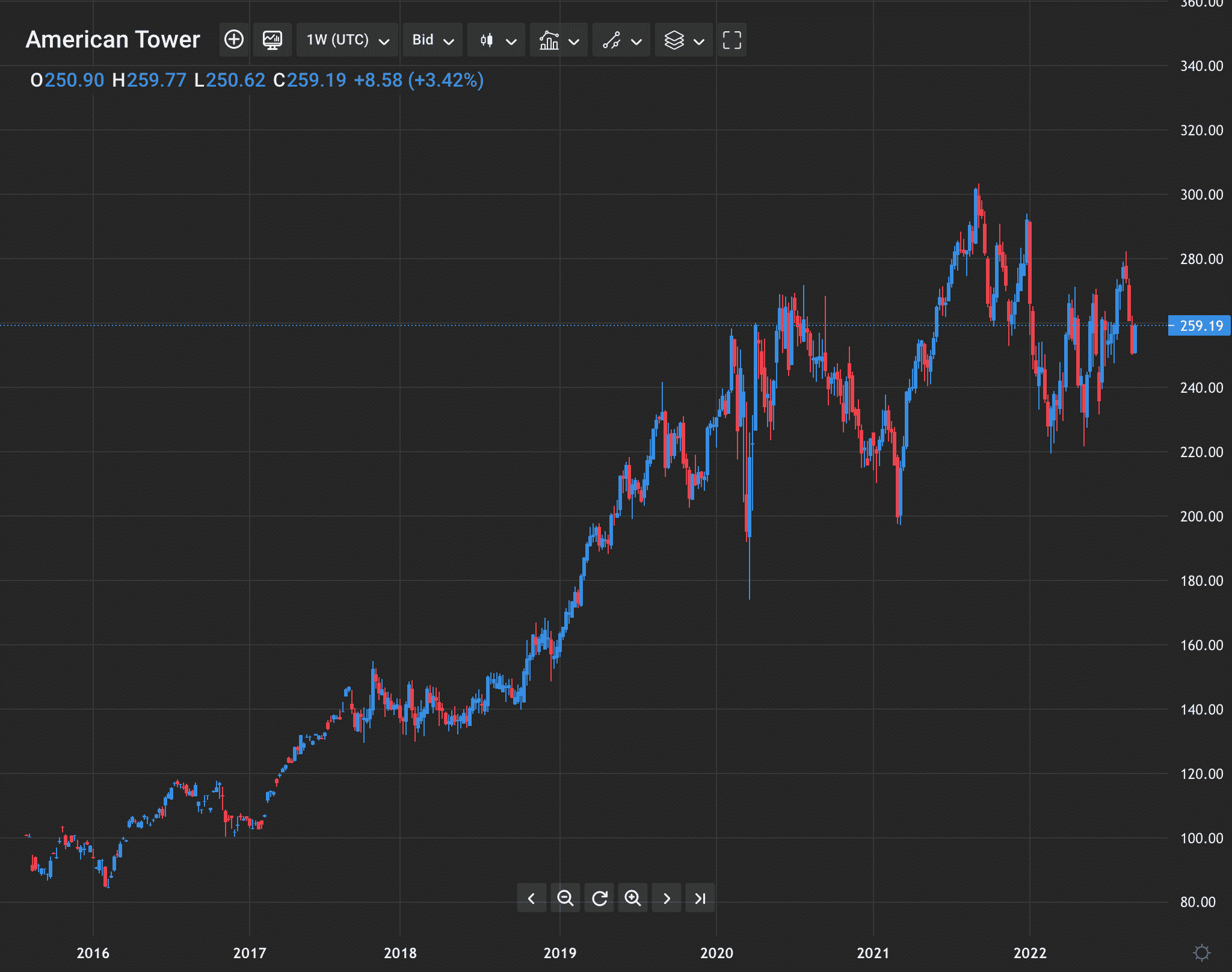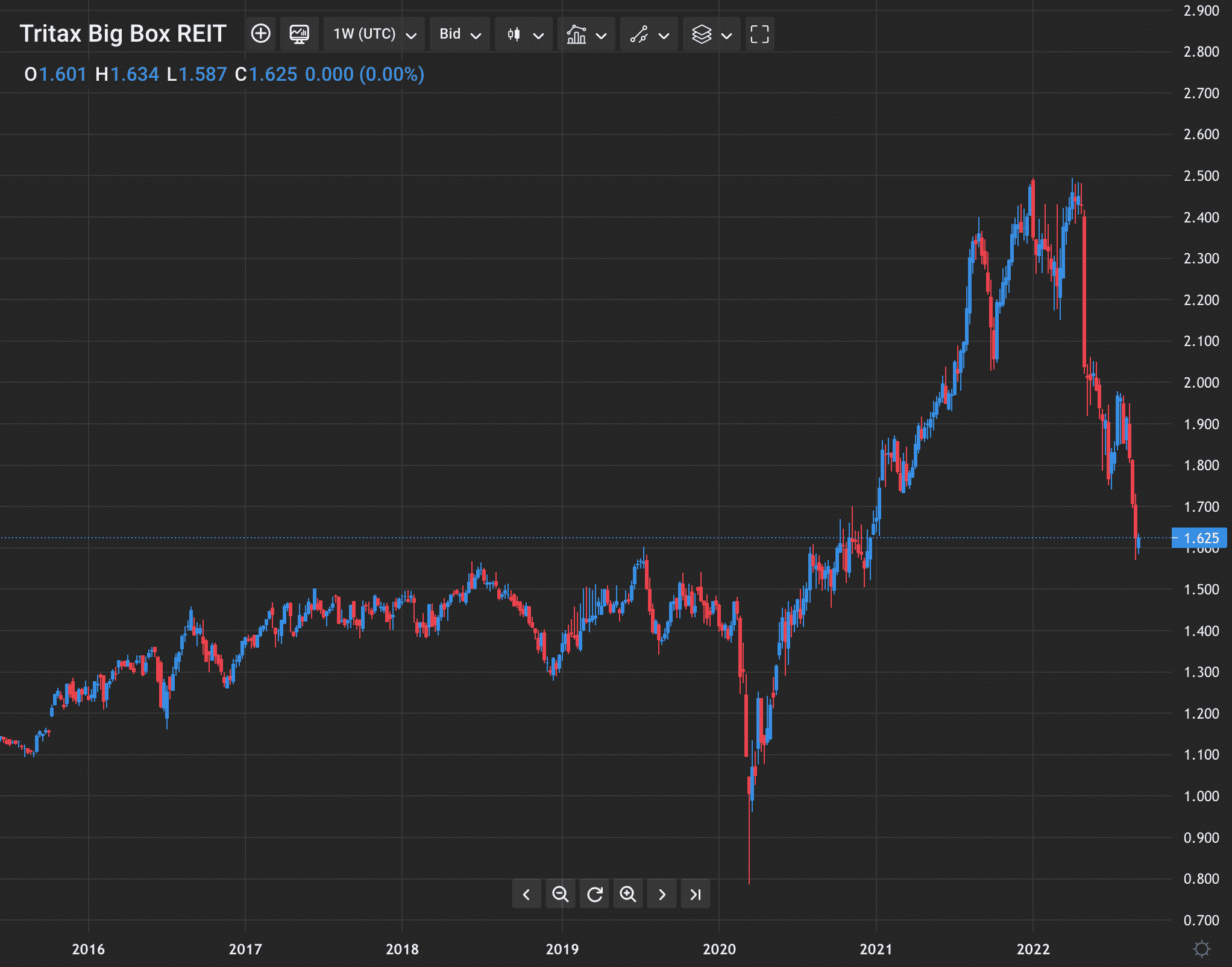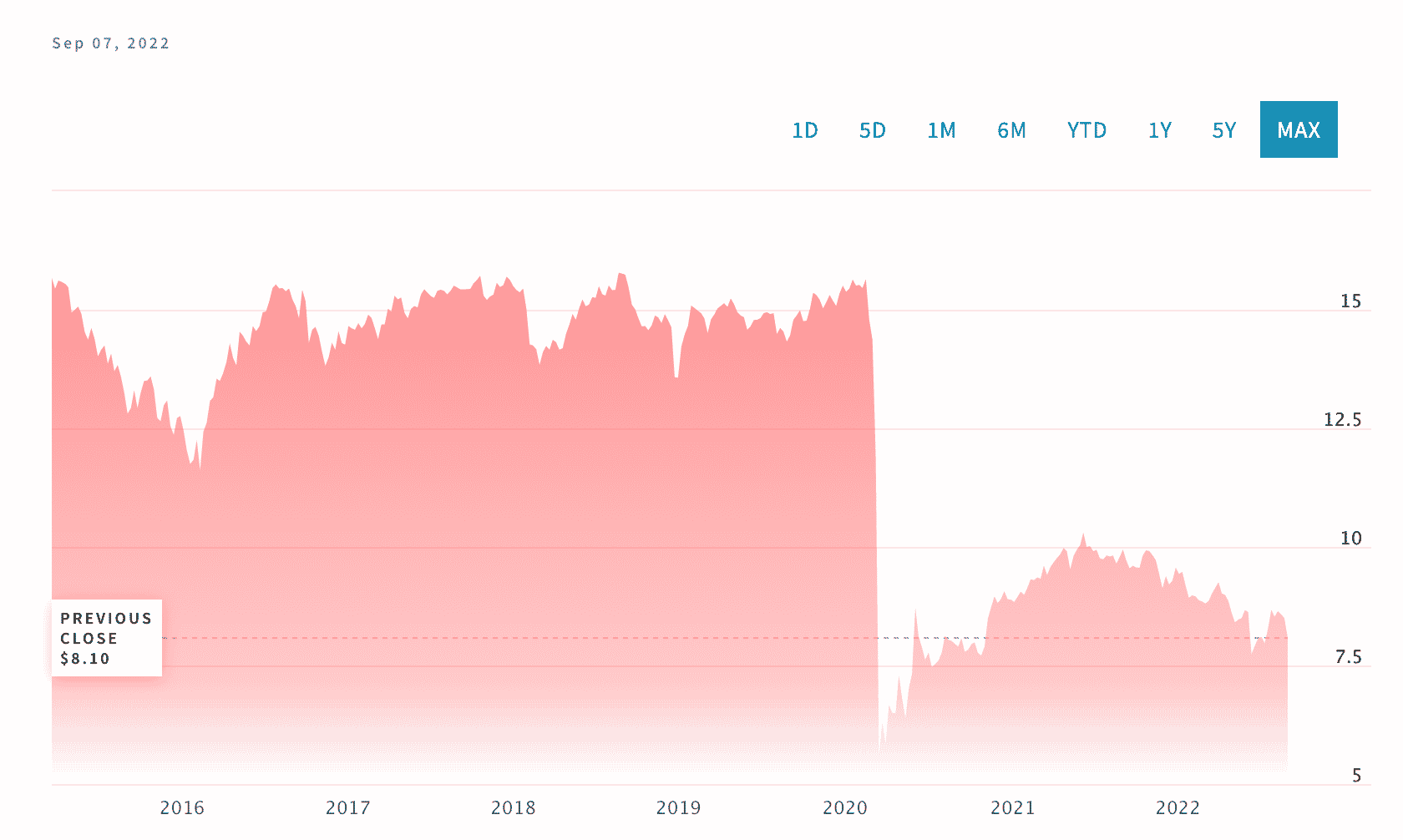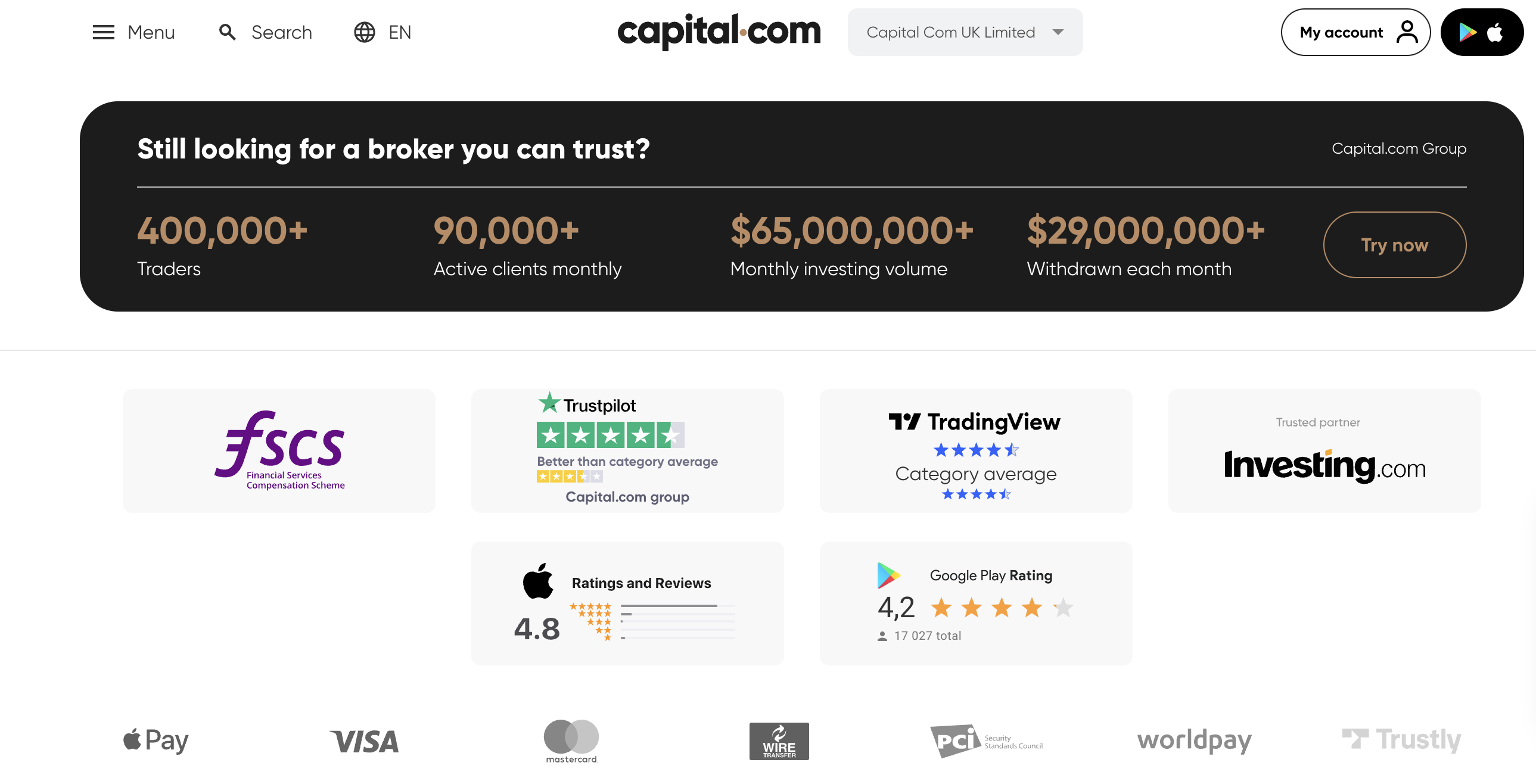Figuring how to invest in REITs? ‘Real Estate Investment Trusts’ are popular with investors looking to get exposure to the property market – without having to buy property itself. REITs are good too as a fixed income asset because, by US law, they must pay out 90% of their taxable income as dividends.
Below we look at how to invest in REITs for beginners. In exploring where to invest in REITs for the best deal, we review a popular broker: Capital.com. We also look at how real estate investment trusts work and inspect what REITs to invest in.
How to Invest in REITs – 5 Easy Steps
Brokers make investing in real estate trusts very easy. Follow the five simple steps below, and investors will be experts themselves on how to invest in REITs before they know it:
- ✅Step 1: Open an account with a REIT broker – Head to the website of your preferred broker. Usually all that is needed to start are a few personal details.
- Step 2: Verification – To get verified as a legitimate customer, supply proof of ID and address.
- Step 3: Deposit – With Capital.com, for example, investors may deposit funds into their account easily: credit/debit card, bank transfer and a range of e-wallets are all accepted.
- Step 4: Search for REITs – REITs are available as individual shares or as part of ETFs. Browse at your leisure.
- Step 5: Buy REIT stock – Once your research is done, investing in REITs is straightforward. Most brokers allow investors to simply enter how much they want to spend and confirm for the trade to execute.
Your capital is at risk. 80.61% of retail investor accounts lose money when trading CFDs with this provider.
Where to Invest in REITS in 2025
Investing in REITs (Real Estate Investment Trusts) begins with picking a REIT broker.
Many online stock brokers offer REITs. We suggest you try out brokers which:
- Are regulated by sovereign financial authorities.
- Offer free demo accounts for stocks.
- Charge zero commission on stock trades.
Capital.com is a broker which offer these features.
Capital.com – Regulated REIT Broker with Zero Commission Fees
This broker is one of the popular low spread forex brokers, but Capital.com offers 5,600 markets in all. Offered are shares, ETFs, commodities, forex and indices.
Serving 427,000 clients from offices in 9 countries, Capital.com is regulated by the FCA in the UK, ASIC in Australia and CySEC in Cyprus.
Capital.com charges no commission on many trades, including REITs. Over 40 REITs are available, including popular names like:
- The hotel-focused Apple Hospitality REIT (APLE) with 233 hotels in 34 US states.
- The Supermarket Income REIT (SUPR) with 73 UK grocery supermarkets.
- The Global X SuperDividend REIT ETF (SRET) which invests in the top 30 REITs with the highest dividend yields.
All trades with this broker are carried out as Contracts-For-Difference (CFDs). This means that investors can leverage their trades for greater gains (and potential losses!) and – most usefully – go short on REIT stock. Overnight fees apply to CFD trades, so they are best for short-term positions.
Find out more about this broker with our full Capital.com review.
| Approx Number of REITs | 40+ REITs and REIT ETFs |
| Pricing System | Spread fee and overnight fees on CFD trades |
| Payment Methods | Buy stocks via credit card, wire transfer, Worldpay, Trustly, ApplePay |
| Non-Trading Fees |
No withdrawal fee, no deposit fee |
Pros
Cons
80.61% of retail investor accounts lose money when trading spread bets and/or CFDs with this provider. Investors figuring out how to invest in REITs will be relieved to hear that the process is no different from if they wanted to invest in stocks. With an online broker, shares of REITs can be bought and sold. Or REIT ETFs can be invested in. The broad business model for a REIT is to invest in property and generates income by leasing that property out. REITs are an American invention. The REIT model has spread elsewhere - for example, to the UK. In both cases, a singular legal factor makes REITs particularly good for investors looking for dividend returns: Nareit provides the definitive index for the US property market: the FTSE NAREIT Equity REIT Index. As with any asset, research is the key. Investors can search for REITs by entering 'REIT' in the search bar of their online broker. A key thing to look out for is the unique way in which the profitability of REITs is sometimes calculated. Instead of using EPS (Earnings Per Share), the balance sheets of REITs sometimes use FFO (Funds From Operations) instead. FFO takes into account the peculiarities of the REIT business model. The two main types of REIT are: A REIT that invests in both properties and mortgage financing is sometimes called a 'hybrid REIT'. Equity REITs may be further subdivided into retail REITs, industrial REITs, healthcare REITs, logistics REITs, office REITs and communications REITs. Investors looking to spread their risk might consider REIT ETFs, which invest in a basket of REIT stocks (one example is the GlobalX SuperDividend REIT ETF (SRET) featured below). Suppose an investor were figuring out the best way to invest $100k. It all depends on the investor's risk appetite. But REIT ETFs might make up $5k of the investor's portfolio. Because they follow the property markets, REITs are often seen as an asset that correlates inversely to the stock markets; in other words, when the stock markets are down, REITs have a reputation for holding their own. This makes REITs a 'contrarian' asset to balance more conventional purchases in stocks and ETFs. Investing in REITs 2022 is ideally a long-term venture. Although investors can trade fluctuations in REIT prices, it is more usual to invest in REITs for the long-term and aim to benefit from their dividend payments. Hence REIT ETFs are very popular, and two are included below alongside 3 popular REIT stocks. A massive REIT, AMT is one of the top 500 US companies listed on the S&P 500 Index. AMT owns 222,000 property sites across 6 continents. This $120bn REIT's focus is on wireless and broadcast communications infrastructure; it owns 40,000 communications towers, for example, and leases them out. In stop press, AMT has just bought 165 towers from Verizon and leased a further 11k+ in a deal worth $5bn. In 2022, American Tower was named one of the world's most admired companies for 2022 by Fortune Magazine. The AMT REIT has shown 300% growth since 2016, as we can confirm from the price chart below. Tritax focuses on modern logistic installations larger than 500,000 sq ft and lets them to institutional tenants on 12 year + leases. The firm has a total portfolio value of £6.03bn and c. 40m sq ft of property. Key clients include grocery retailers like Marks & Spencer, Tesco and Sainsbury's. Tritax owns facilities built for automotive manufacturer Rolls Royce, couriers DHL, home furnishings firm Dunelm and others. Fears over price inflation in the UK have seen the price of Tritax shares plummet from almost $2.5 at the beginning of 2022 to $1.625 now. Apple Hospitality's top brands are Marriot hotels (94), Hilton hotels (119) and Hyatt (4). This REIT pays out regular monthly cash distributions. And, in August 2022, the firm announced an increase in its monthly payout from $0.05 per common share to $0.07. This amounts to an annual dividend yield of approximately 4.9%. Like all businesses in the property sector, Apple has had to cope with reduced footfall thanks to the Pandemic. And the hotel industry was hit particularly hard. However, CEO J. Knight remarks that, 'we remain confident in the positive trajectory of the recovery and believe we are incredibly well positioned to continue to allocate capital ...' An influential REIT ETF, this tracks the Real Estate Select Sector Index. XLRE includes some companies which are not REITs, and excludes mortgage REITs. As a tracker index fund, it is not surprising to discover that this ETF has an Expense Ratio of just 0.10%. Founded in 2015, XLRE trades on the New York ARCA exchange. It has a market capitalization of $52bn and 31 assets under management totaling $5bn+. XLRE's top holdings are: SRET's top three holdings are: However, since its inception in 2015, the market price of a share in SRET is down 0.73%. This REIT shows a common theme with REITs: dividends are generally good (thanks to the legal obligation to distribute 90% of taxable income), but the capital value is at the mercy of the property market. The value of SRET fell off a cliff with the onset of the Pandemic, and has yet to recover - as we can see from the chart below. 145m Americans have a piece of the REIT sector through their retirement savings and investment funds. If a proactive investor wants to buy dividend stocks in particular, REITs are an obvious asset to look at. As we have observed, REITs must pay out 90% of their taxable income as dividends/distributions. REITs have a reputation for weathering inflation well, but not doing so well during high interest rates. With interest rates rising and inflation the highest it has been for 40 years, is now the right time to get into REITs? REIT trade body NAREIT reports that, 'in 2021, with inflation running well above recent trends, REITs outperformed the S&P 500 by 12.6 percentage points.' Theoretically, the REIT business model makes them vulnerable to high interest rates. This is because REITs borrow money to invest in property. However, as of August 2022, data from the Nareit Total REIT Industry Tracker Series Report reveals that REITs posted 'record-high funds from operations (FFO) as they navigate ongoing interest rate increases and high inflation.' Broadly, both dividends and capital gains on REITs are subject to taxation. But taxation of REITs is complicated, as: Investors are urged to consult a tax professional before investing in REITs. In the meantime, investors can learn from REIT trade body Nareit about taxes and REIT investment. For long-term investment, REITs offer a unique mix of fixed income and potential capital gains - but at the price of some volatility thanks to the rollercoaster nature of global property markets. For capital growth potential, though, how to invest in a REIT in a moot question: there are far better options out there. Few asset classes can beat the most promising crypto when it comes to growth. And that is particularly the case with the best crypto presales. Alert investors can use presales to buy crypto early before they launch officially with their ICO (Initial Coin Offering). And available in presale is one of the hottest crypto right now - Tamadoge (TAMA). TAMA is billed as the next Dogecoin (the doggy meme crypto that took 2021 by storm). And we can see why. As an exciting hybrid of cute meme coin and play-to-earn/NFT utility tokens, Tamadoge could well be the next crypto to explode in 2025. TAMA is the coin for a whole world of player engagement. Players in the Tamadoge metaverse own a cute virtual pet embedded as an NFT. To earn more TAMA, the idea is to train and accessorise the pet and compete against others. So the 'Tamaverse' brings the addictive mechanics of play-to-earn games to the doggy appeal that rocketed meme coins in 2021. What's more, this project is definitely above board. The smart contracts have been audited by experts Solid Proof and the Tamadoge team is vetted by Coinsniper. The $2m Beta presale sold out ahead of schedule. But there's still time to get in on the TAMA presale. The price of TAMA goes up with every tranche, so it pays (literally) to get in early! Tamadoge has its first CEX listing confirmed on LBank and a listing on Uniswap is next. To get your hands on one of the best emerging cryptos of 2025, just follow 4 simple steps:
Are REITs worth investing in? Above we have attempted to find out as well as to outline how to start investing in REITs. REITs are recognised as being among the best dividend stocks. And their exposure to the property market makes them a good way of diversifying an investment portfolio. That is because the property markets sometimes do well when stock markets do not. The downside of REITs is that their share value can plummet when the property market goes into one of its periodic downturns. In stop press news we have featured TAMA, one of the top trending cryptos right now. In its exciting presale phase, Tamadoge offers investors the chance to get in before the price potentially skyrockets after its ICO. Investors looking for a bargain can buy Tamadoge right now. Tamadoge - The Play to Earn Dogecoin
How Does Investing in REITs Work?
How does a Real Estate Investment Trust work?
What is NAREIT?

How to Find the Best REITs to Invest in
What Types of REIT are there?
How Much to Invest in REITs?
5 Best REITs to Watch Right Now
1. American Tower Corporation (AMT)


2. Tritax Big Box REIT (BBOX)


3. Apple Hospitality REIT (APLE)


4. Real Estate Select Sector SPDR ETF (XLRE)


5. GlobalX SuperDividend REIT ETF (SRET)


Are REITs a Good Investment?
REITs and Dividends
When to invest in REITs?
Investing in REITs During Inflation
Investing in REITs During High Interest Rates
How are REITs taxed?
REITs vs Presale Cryptos - Which is the Better Investment in 2025?
Min Investment
1,000 TAMA (∼$10+ gas fee)
Max Investment
NA
Purchase Methods
ETH or USDT now; fiat currency soon
Blockchain
Ethereum (ERC-20 token)
Presale Ends
Q4 2022
Conclusion
FAQs
How do I invest in a REIT?
Is it smart to invest in REITs?
What are some good REITs to invest in?
What are the two types of Real Estate Investment Trusts?
Do you pay tax on REIT?
Is tax deducted from REIT dividends?

